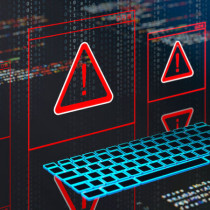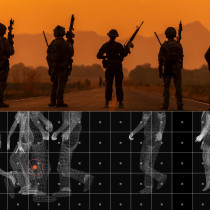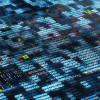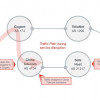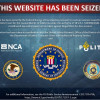Ex-KGB Expert Unveils New Computer Shield
The one-time head of KGB overseas
code-scrambling and an ex-director of the CIA (news - web sites)
rolled out Monday what they called a revolutionary way of hiding
Internet communications from prying eyes and would-be intruders.
The new system can change the cyber-addresses on a network faster
than once a second, cloaking them from all but authorized parties, said
Victor Sheymov -- founder, president, and chief executive of Invicta
Networks Inc.
``We believe that our new technology will serve an important role as a
facilitator of Internet security and will start a new chapter in Internet
history,'' he told reporters at the National Press Club.
Endorsing Invicta's so-called Variable Cyber Coordinates system was
American International Group Inc. (NYSE:AIG - news), the world's
biggest insurance company by market cap, with more than $250 billion
in assets.
Ty Sagalow, chief operating officer of the insurer's electronic business
risks arm, announced AIG would give a 10 percent discount to
companies using the Invicta product ``because we believe it reduces our
risk of loss'' due to cyber attack.
R. James Woolsey, Bill Clinton's CIA director from 1993 to 1995 and
an Invicta board member, described the tool as an ''absolutely
remarkable intellectual achievement.''
``It just approaches this from a completely different direction than
anybody else,'' he told reporters. ``Everybody else has been building
fences around announced locations.''
Standard approaches to computer security rely on encryption, or data
scrambling, plus devices such as firewalls aimed at screening out
abnormal traffic patterns that look threatening.
But any network protected this way is a sitting duck for a determined
hacker, Invicta said. Instead, it puts the network in cybermotion through
a continuous change of ``Internet Protocol'' addresses -- the chain of
digits underlying the Web to route traffic to its destination.
The Invicta system uses special cards to link protected computers to a
central control unit. It lets clients decide how often they wish to vary IP
addresses and specify which applications may be accessed on their
network. The number of IP addresses drawn on may be in the billions
thanks to an artificial increase in cyberspace, Sheymov said.
Invicta, headquartered in Herndon, Va., plans to begin shipping a
``Beta'', or early release, of its system to paying customers by the end of
this month, said Sheymov, who defected to the U.S. in 1980 for what
he called ideological reasons.
Sheymov is a veteran of the KGB's 8th Chief Directorate, the Soviet
counterpart to the Pentagon (news - web sites)'s codecracking and
eavesdropping National Security Agency. By the time of his defection,
he was responsible for coordinating all KGB encrypted communications
overseas. After defecting, he worked as a consultant and contractor to
the NSA for several years, according to a company handout.
The CIA officer who smuggled him out of the former Soviet Union and
who later served as Moscow chief of station under Woolsey, David
Rolph, is Invicta's vice president for international sales.
Sheymov told reporters that Invicta's address-hopping technology went
well beyond network protection. Another version would be made
available within months for defending Internet-based electronic
commerce, he said. Future applications included protecting national
infrastructure, databases and dial-up communications, he added.
He declined to spell out the cost of the system but said it would be on
the ``high end'' of traditional computer security packages. Invicta, a
1999 start-up, may go public in a year or two after it establishes a track
record of earnings and sales growth, Sheymov said.
Dennis Steinauer, a computer security specialist at the Commerce
Department (news - web sites)'s National Institute of Standards and
Technology in Gaithersburg, Md., said he would be skeptical of any tool
that purported to make other layers of security unnecessary.
``It sounds like it might provide some additional protection,'' he said.
``But, in general, you never want to go with just one layer of security,
certainly not with yet-unproven technology,'' he said.




